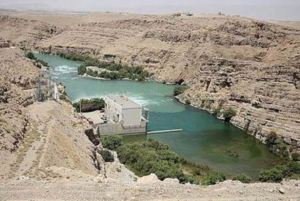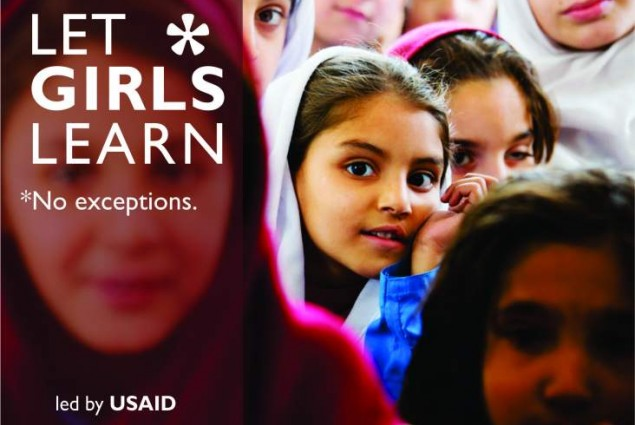The United States spends by far the most money on humanitarian aid of any country. Last week, more than $800 million in additional aid to Africa and the Middle East was pledged by the U.S. Agency for International Development, with nearly $600 million for famine relief in Yemen, South Sudan, Nigeria and Somalia.
Yet Americans need to keep in mind that, as Washington Post diplomatic correspondent Carol Morello reported, our commitment as a percentage of GDP is roughly the same as Portugal and Japan, “while many European countries like Sweden, Switzerland and Luxembourg are far more generous.”
Americans overall are most hesitant about foreign-aid spending when the purpose is described as bolstering the nation’s strategic interests … our political or economic influence, or hegemony, over other countries.
However, extensive research led by public opinion expert Steven Kull shows we do not want humanitarian aid cut, and we especially see an obligation to provide food and medical assistance with the goal of alleviating hunger and disease in the world’s poorest countries.
Those conclusions were drawn from several detailed surveys analyzed and in many cases conducted by Kull and his team at the University of Maryland’s Program for Public Consultation (PPC).
As we noted last week, Kull is confident Congress will follow the American public’s lead – not the White House – in continuing budget support for foreign aid near $50 billion, but details for spending in Fiscal Year 2018 are still unclear. We don’t have the budget yet.
“The Trump administration’s effort to ramp down humanitarian forms of aid while preserving aid that serves U.S. strategic interests is an inversion of the public’s priorities,” Kull wrote in a paper presented last month to dozens of national and world leaders in humanitarian aid and global development gathered at the 14th annual Brookings Blum Roundtable on Global Poverty.
** **
At the United Nations General Assembly, President Trump said the U.S. is committed to continuing humanitarian assistance. We should be encouraged, in fact, that humanitarian relief organized by the U.S. Agency for International Development is continuing at high levels in the wake of several natural and man-made disasters.
The sixth USAID-organized disaster assistance response team now working in foreign lands arrived Thursday morning in Mexico City, a team of 67 people, five dogs and 62 tons of excavating equipment to assist in search and rescue after the country’s second massive earthquake this month. This matches the previous high of six USAID teams in 2015. In addition to Mexico, USAID teams are active now in the Caribbean, South Sudan, Iraq, Syria and Nigeria.
“Whether it’s responding to an earthquake, drought or conflict, America is committed to standing shoulder to shoulder with people in their hour of need,” Mark Green, the new USAID administrator, said in announcing the Mexico City effort at a U.N. press briefing. “It is who we are as Americans.”
Kull’s analysis shows public opinion supports America’s leading role in providing disaster assistance, but a majority – 63 percent – believe aid programs should have a broader purpose.
They say aid programs should help strengthen economies and encourage more resilience in poor countries to help those countries become more resilient to natural and man-made disasters. Another thirty-five percent, including half of Republicans surveyed, were skeptical; they agreed with the statement that “trying to help poor countries develop their economies is a bottomless pit and often ends up just enriching corrupt government officials.”

This USAID photo, from 2015, shows a new hydroelectric power project in southern Afghanistan, adding a third turbine generator to others first developed at Kajaki Dam by the U.S. in the 1970s and rehabilitated in 2005 and 2009.
** **
In a fascinating opinion sounding conducted in May, the PPC asked participants to create their own federal budget for 2018 by adjusting 31 different line items such as defense spending and foreign aid. They were reminded about the debate over whether reducing the budget deficit is important, and advised at each step, with each choice, how much the budget deficit would change – up or down.
A majority in that group favored reducing the deficit by $212 billion, while continuing at $5 billion the line item of humanitarian assistance, described as “food aid to malnourished people, assistance in the event of disasters, aid to refugees from political conflict.” With thirty-two percent reducing humanitarian assistance (47 percent Republicans), and thirty-two percent increasing it, the group netted out with no change in the aid line item.
A Kaiser Family Foundation poll showed similar views in a budget-framing exercise. Only three in ten elected to reduce “economic assistance to needy people around the world.”
The PPC study also included these findings:
- A majority participating in the line-item exercise favor slight trims to development assistance, defined as “aid to people in poverty to help them develop economically: providing loans, training technology, the Peace Corps.”
- However, eighty-one percent back “food and medical assistance to people in needy countries.” (Republicans 73 percent, Democrats 90 percent.)
- Seventy percent agree that “the United States should be willing to share at least a small portion of its wealth with those in the world who are in great need.”
- Child survival programs, including prenatal care, immunizations and nutrition, scored highest on a scale of 0-to-10, with a mean score of 7.4.
- Most foreign assistance programs had high mean ratings on the 0-to-10 scale, such as education and training in poor countries (7.1), helping women and girls in poor countries (7.0), and the Peace Corps (6.6). (The top photo, made in August 2016, shows Pakistani girls in the USAID-supported “Let Girls Learn” project.)
- The lowest tally for assistance programs was in “making very small loans to people in poor villages so they can start small businesses there” (5.6 overall, Republicans 4.7) and “promoting democracy by helping organize and monitor elections” (4.9, Republicans 4.2).
Carolyn Miles, president and CEO of Save the Children, told the Post’s Morello that with two major earthquakes, three hurricanes and flooding in India, Bangladesh and Nepal, and the Rohingya refugee crisis in Myanmar, “the number of significant emergencies is unprecedented.” Miles added, “The leadership of the United States is important.”
—
Read Steven Kull’s full briefing paper
Read the full Washington Post report
Photos courtesy of the U.S. Agency for International Development


Leave a Reply